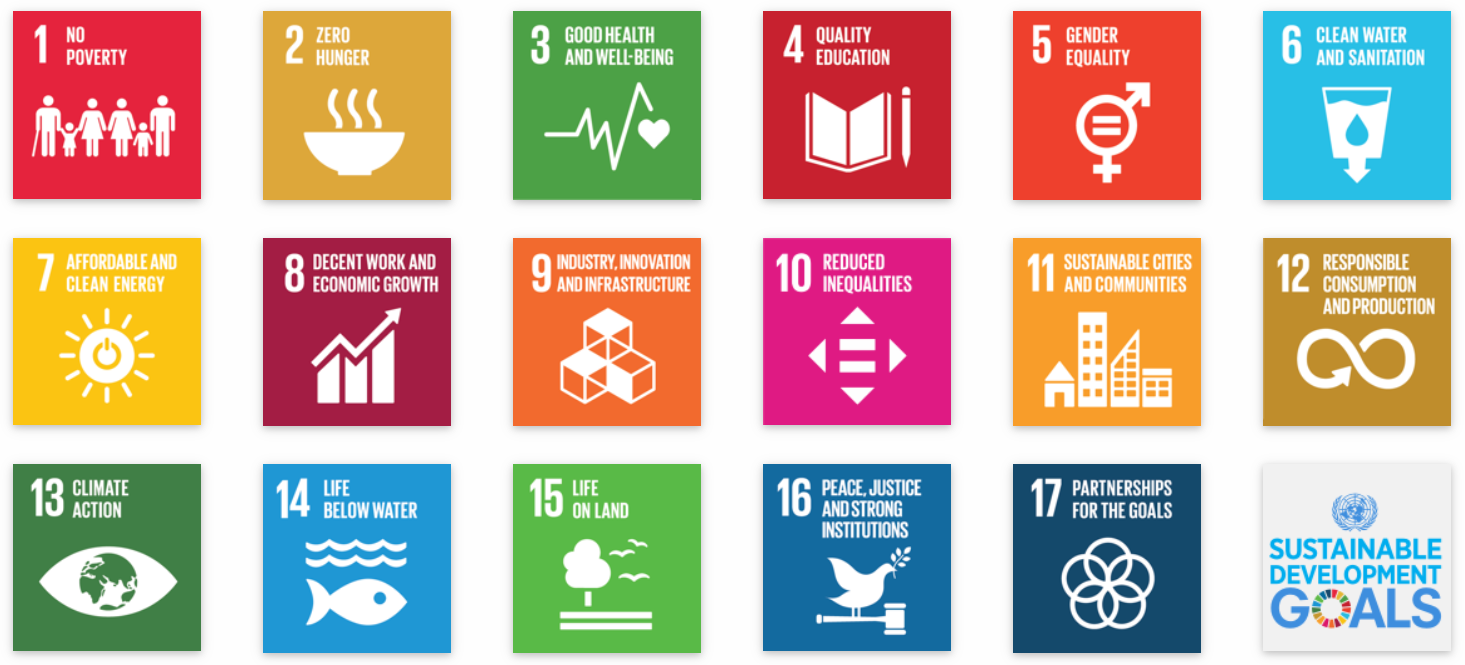In a world increasingly aware of the pressing need for sustainable practices and equitable growth, a new breed of entrepreneurs is rising to the challenge. These are the impact entrepreneurs, pioneers who are not just content with building successful businesses, but are driven by a purpose – to bring about positive change in society and the environment. Their innovative ideas and sustainable business models are disrupting traditional industries and paving the way for a green economy.
This blog post delves into the world of impact entrepreneurship, exploring its significance in today’s world, how it’s changing the way we do business, and why it’s crucial for our future. We’ll look at real-life examples of impact entrepreneurs who are making a difference, discuss the principles that guide them, and explore how you can support their mission.
Whether you’re an aspiring entrepreneur, an investor, a policy-maker, or someone who wants to understand how businesses can contribute to a sustainable future, this blog post is for you. Join us as we explore the rise of impact entrepreneurs and how their sustainable mindset is changing the world.
Let’s begin by understanding who these impact entrepreneurs are and why the world needs more of them.
What is an Impact Entrepreneur, and Why Does the World Need More of Them?
The world is changing rapidly, and so is how we do business. Impact entrepreneurs are at the forefront of this change, leading the way with their sustainable mindset and commitment to social and environmental causes. So, what is an impact entrepreneur, and why does the world need more of them?
An impact entrepreneur is someone who uses their business acumen to create positive change in the world. They are driven not just by profit but by a desire to make a difference, to leave the world a better place than they found it. They approach business with a sustainable mindset, recognizing that we must live in harmony with our planet and that social and environmental challenges must be addressed alongside economic ones.

Sustainability in business is no longer a luxury but a necessity. The old way of doing things, where profit was the only measure of success, is no longer tenable. We cannot continue to ignore the negative impact that our actions have on the environment and on society. Impact entrepreneurs understand this and are leading the way in creating a more sustainable future.
Social entrepreneurship is a key part of impact entrepreneurship. These entrepreneurs are focused on addressing social challenges like poverty, inequality, and lack of access to education or healthcare. They see the potential for businesses to be a force for good and use their skills to create innovative solutions to these problems.
The world needs more impact entrepreneurs because they bring a fresh perspective to the world of business. They understand that success is not just about making money but about positively impacting the world. They are not afraid to take risks, to think outside the box, and to challenge the status quo. They inspire others to do the same, to use their talents and resources to make a difference.
The rise of impact entrepreneurs is a cause for optimism. It shows that there is a growing awareness of the need for sustainability in business and a recognition that we cannot continue to operate in a business-as-usual manner. Impact entrepreneurs are creating a new paradigm for business that values social and environmental impact as much as economic success.
In conclusion, impact entrepreneurs are leading the way toward a more sustainable and equitable future. They are changing the world with their sustainable mindset and commitment to social and environmental causes. As we face unprecedented challenges, from climate change to social inequality, we need more impact entrepreneurs to step up and lead the way. Let us celebrate their achievements and support their efforts to create a better world for all.
3 Reasons Why Impact Entrepreneurs are Changing How We Do Business
Impact entrepreneurs are driving a revolution in business, transforming how we think about sustainability and social responsibility. They challenge traditional business models and pave the way for a more sustainable, equitable future. Here are three reasons why impact entrepreneurs are changing how we do business:
1. Social impact entrepreneurs are creating innovative solutions to social problems

Social impact entrepreneurs are using business to address some of the world’s most pressing social issues, such as poverty, education, and healthcare. They are creating innovative solutions that are making a real difference in people’s lives. By using business to tackle social problems, social impact entrepreneurs are proving that there is a way to make a profit while also doing good in the world.
For example, Warby Parker, an eyewear company, uses a “buy one, give one” model to provide glasses to people in need. This approach has helped over 8 million people in developing countries access glasses. Another example is TOMS, a footwear company that donates a pair of shoes to a child in need for every pair of shoes purchased. TOMS has donated over 100 million pairs of shoes to children in need since its inception.
2. Sustainability business models are becoming the norm
Impact entrepreneurs are proving that sustainable business models can be profitable. They demonstrate that businesses can be successful while being environmentally and socially responsible. The rise of sustainable startups is a testament to the fact that sustainability is no longer a fringe issue but a mainstream concern. Green business ideas are gaining traction, and sustainable practices are becoming the norm rather than the exception.
For example, Patagonia, an outdoor clothing company, has a strong commitment to sustainability. They use sustainable materials, prioritize fair labor practices, and have a robust recycling program for their products. Another example is The Body Shop, a cosmetics company that promotes ethical and sustainable sourcing, supports community trade and is committed to reducing its environmental impact.
3. Impact entrepreneurs are challenging traditional business models

Impact entrepreneurs are challenging traditional business models and proving that there is a better way to do business. They question the status quo and push for more responsible, ethical, and sustainable practices. By doing so, they are changing the conversation around business and inspiring others to follow in their footsteps. They show that businesses can be successful while positively impacting society and the environment.
One example is The Honest Company, a consumer goods company founded by actress Jessica Alba that creates non-toxic and eco-friendly products for families. The Honest Company’s products are made with sustainable materials and are free from harmful chemicals, making them safe for families and the environment.
Another example is Allbirds, a sustainable footwear company that uses sustainable materials such as merino wool and eucalyptus to create comfortable and stylish shoes. The company has also pledged to become carbon-neutral and has implemented sustainable practices in its supply chain to reduce its environmental impact.
How Impact Entrepreneurs are Encouraging a Movement Towards Sustainability
Impact entrepreneurs are making a significant impact in the movement towards sustainability, inspiring change and innovation across various industries. Their sustainable mindset and commitment to social and environmental responsibility transform the business world and promote a greener, more sustainable future. Here are some examples of how impact entrepreneurs are encouraging a movement toward sustainability:
1. Environmental sustainability

Impact entrepreneurs are committed to environmental sustainability, using their businesses to create positive change in the environment. They are developing green products and services, reducing carbon emissions, and adopting sustainable practices to reduce their environmental impact. They are also promoting using renewable energy and sustainable resources, driving the transition to a low-carbon economy.
Impact entrepreneurs are creating innovative solutions that promote environmental sustainability. For example, Biome, an Indian company, creates compostable and biodegradable products to reduce waste. By using sustainable materials and reducing waste, Biome is contributing to the circular economy, where products are designed to be reused and recycled. Another example is Tesla, which revolutionizes the transportation industry with electric vehicles and clean energy solutions. Tesla is reducing carbon emissions, promoting renewable energy, and driving the transition to a low-carbon economy.
2. Green economy
Impact entrepreneurs are creating jobs and driving economic growth through the development of sustainable businesses. They are promoting the growth of the green economy, which is based on sustainable practices and technologies, promoting the creation of a more sustainable and equitable society. The green economy provides opportunities for young people and marginalized communities, fostering social inclusion and economic development.
Impact entrepreneurs are shaping the green economy by creating sustainable businesses that provide opportunities for growth and development. One example is Ecolife Recycling, a California-based company that provides waste management and recycling services. Ecolife Recycling reduces waste, promotes sustainable behavior, and creates jobs in the green economy. Another example is Yumbutter, a Wisconsin-based company that produces organic nut butter and promotes fair trade and sustainable practices. Yumbutter is contributing to sustainable agriculture and supporting small-scale farmers in developing countries.
3. Environmental Conservation
Impact entrepreneurs are promoting environmental conservation by using their businesses to raise awareness about environmental issues and promote sustainable behavior. They are educating consumers about the importance of environmental conservation and promoting sustainable lifestyles. They are also partnering with environmental organizations to drive conservation efforts, protect natural resources, and promote biodiversity.
Impact entrepreneurs are promoting environmental conservation by using their businesses to raise awareness and drive conservation efforts. For example, The Ocean Cleanup, founded by Boyan Slat, is developing technology to remove plastic waste from the oceans. The Ocean Cleanup is raising awareness about the impact of plastic pollution on marine life and promoting sustainable practices. Another example is Dr. Bronner’s, a California-based company that produces organic and fair-trade personal care products. Dr. Bronner supports environmental organizations and promotes conservation efforts to protect natural resources and biodiversity.
Creating Lasting Change Through Sustainable Development Goals & Principles

Impact entrepreneurs are at the forefront of driving positive change in the world by adopting sustainable development goals and principles. These entrepreneurs are using their businesses as a vehicle to make a positive impact on the environment, society, and the economy. By aligning their businesses with sustainable development goals and corporate social responsibility principles, they are creating lasting change and a more sustainable future for all.
One of the most prominent sustainable development goals is Goal 13: Climate Action, which seeks to combat climate change and its impacts. Many impact entrepreneurs are tackling this goal head-on by creating businesses that reduce carbon emissions and promote sustainable practices. For example, Tesla is a leading electric vehicle manufacturer that is helping to reduce the carbon footprint of the transportation industry. Through their electric cars, solar panels, and energy storage products, Tesla is driving the transition to a more sustainable energy future.
Another key sustainable development goal is Goal 12: Responsible Consumption and Production. This goal aims to promote sustainable consumption and production patterns that reduce waste and promote resource efficiency. Impact entrepreneurs are addressing this goal by creating sustainable products and services that are designed to minimize waste and environmental impact. One such example is Loop, a company that provides a circular solution to single-use packaging by collecting used packaging from consumers, cleaning and refilling them, and delivering them back to the consumer.
Corporate social responsibility principles also play a crucial role in guiding impact entrepreneurs toward creating positive change. These principles encourage businesses to take responsibility for their impact on society and the environment and to make a positive contribution to the communities in which they operate. One example of a company that embodies corporate social responsibility principles is Patagonia, an outdoor clothing and gear company that has been a leader in sustainability for decades. Patagonia’s mission statement is to “build the best product, cause no unnecessary harm, and use business to inspire and implement solutions to the environmental crisis.” The company is committed to using sustainable materials, reducing waste, and supporting environmental and social causes.
The Benefits of Investing in Sustainable Startups & Ventures
The world is changing, and with it, so are business practices. Sustainable startups and ventures are on the rise, and investors are taking notice. Investing in sustainability startups not only benefits the environment but it can also be a wise financial decision. Here are some of the benefits of investing in sustainable startups and ventures.

Firstly, sustainable startups often have a strong social and environmental mission. Investors who align with these values can feel good knowing that their money is going towards a cause they believe in. For example, renewable energy startups like Tesla and Sunrun are focused on reducing carbon emissions and creating a more sustainable future. Impact investors who prioritize environmental and social change are drawn to these companies, which often perform well financially while also creating a positive impact on society.
Secondly, investing in sustainable startups can lead to innovation and new business opportunities. Sustainability challenges, such as climate change and resource depletion, require innovative solutions. Sustainable startups are often at the forefront of developing new technologies and solutions to address these challenges. By investing in these startups, investors can bring new ideas to the market and benefit financially from the growth of new industries.
Finally, investing in sustainable startups can also help mitigate financial risks. Traditional investments may be subject to risks associated with climate change, such as natural disasters or policy changes. On the other hand, sustainable startups are often more resilient to these risks as they are built around a sustainable business model and less reliant on finite resources. This makes them a more stable long-term investment.
Real-life examples of successful sustainable startups and ventures include Patagonia, a company known for its environmentally conscious business practices and social activism. Patagonia’s commitment to sustainability has won over consumers and attracted investors who share the company’s values. Another example is Beyond Meat, a plant-based meat substitute company that has seen incredible success due to growing interest in sustainable and ethical food choices. The company’s IPO in 2019 was one of the most successful in recent years.
Taking Action to Support the Rise of Impact Entrepreneurs with Sustainable Mindsets
Are you ready to become an impact entrepreneur and positively change the world? Here are some steps you can take to get started!
First, start with preincubation. This means taking the time to research and plan your business idea before launching it. Think about what social or environmental problem you want to solve and how you can do it in a sustainable way. This preincubation stage can include conducting market research, identifying potential partners, and refining your business plan.
You can start with Impact Entrepreneurship from OAZA Academy. Impact entrepreneurship is a 9-step online course that goes beyond theory, supporting your entrepreneurial beginnings with knowledge and tools on how to develop, evaluate and turn your idea into action.
Next, educate yourself on the principles of impact entrepreneurship and sustainable business practices. Look for resources and courses that can teach you the skills you need to build a successful and impactful business. This could include learning about sustainable supply chain management, social impact measurement, or green product design.
Once you have a solid understanding of impact entrepreneurship, it’s time to start taking action. Seek mentors and advisors who can provide guidance and support. Joining an incubator or accelerator program can also provide valuable resources and connections to help you launch and grow your business.
Remember, becoming an impact entrepreneur is a journey. It takes time, effort, and a willingness to learn and adapt. But the rewards of building a sustainable business that positively impacts society and the environment are well worth it.
So, take the first step and start exploring your potential as an impact entrepreneur today. The world is waiting for your innovative solutions to some of its most pressing challenges!
